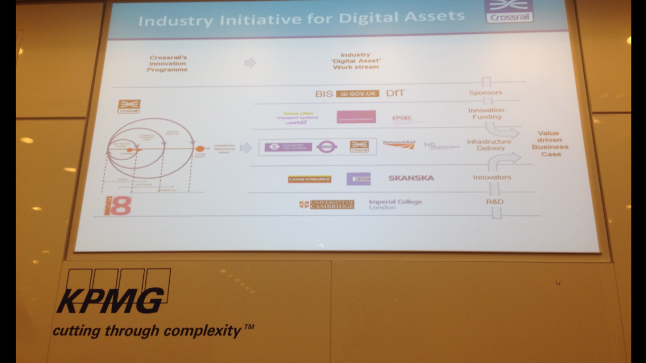My first experience of start-ups (retrospectively) was when setting up my own company, True BIM ltd. I do wonder every now and then what could have been. It offered a service that was (and still is) in high demand and I unfortunately learnt the hard way about payment days (creditor days, and not being paid on time) and subsequently cash flow management.
The tech startup world however, is a different place. I was introduced to a community of start-ups a couple of years ago at an event called silicondrinkabout.com. I strongly recommend to go and speak to everyone there. You will have to experience some cringe worthy clichés but every now and then you discover a bright mind with some inspirational insights and ideas.
From there I have followed the progress of some of the people I met via Twitter and Instagram. One example is pixelpin.co.uk, a new approach to accessing your devices and accounts. Seen them document local pitches in London to the world HQ of Symantec in California.
The newest kid on the block in construction is 3DRepo. The first chapter in the open data and standards approach to construction information. (I know, I know IFC etc)
This is different, this is an external force acting on the industry. As I’ve said before (lost the link to my Smart Geometry 2012 blog post) the Silicon Valley dudes are coming for our industry!
The BIM2050 report spoke about the merging of sectors and skills and combine that with KPMG’s Fast|Forward 2035 nano-corporate structures. 3DRepo is a direct and real example of such movements.
The issue is, the construction industry hasn’t developed an effective infrastructure for investing and deploying innovation. There are TSB programmes and government initiatives but I’m yet to see anything of real substance.
Although there are signs of industry and academia getting closer:
This is from Andrew Wolstenholme’s presentation at the BIM2050 conference. As you can see, the links are happening… But it’s that too little too late?
Where is that framework for HS2? Who managing the integration of startups, academia and industry?
HS2 is a controversial infrastructure scheme, but it’s worth keeping in mind that it is far more than just a high speed rail link.
It’s also a key economic driver of aggregate demand, which is an economic summation of many factors, such as:
– consumer spending
– government spending
– investment
– taxation
The more consumers save, the more investment. The more consumers spend the higher the demand. Tax reduces consumer spending, government spending improves consumer spending, and so on.
Let’s park the environmental issues and the issue of carving up the countryside for now.
On a macro level HS2 will induce growth outside of London, generate jobs and extra capacity.
Imagine your a general crop farmer in Africa and all you have is your land, crops and family. You would only be able to produce enough to sustain your family and will probably need your children to work on the farm as soon as they were able.
A market opens in a nearby town 5 miles away. This enables you to sell any surplus product, but someone needs to spend the day working at the market to sell it. This splits the family, the children see less of their parents.
They manage to save money from their surplus to buy a bicycle. This enables more produce to be carried faster to the market.
This begins the accumulation of capital. As they grow, travel becomes faster, their quality of life improves.
The children are able to be educated instead of working and the parents can spend more time parenting and developing other skills (such as hobbies) than working.
Hopefully you can imagine how that develops through the generations to a point where a high speed train line is needed… Dramatic jump I know!
The point is, infrastructure matters. It has a social impact way beyond its intended scope, accepting that those outcomes can sometimes be undesirable. This is why being adaptive in our management of all social and economic infrastructure is more suitable than having a concrete ‘lifecycle’ plan.
In order to achieve that, construction need to start investing in start-ups. They are perfect vehicles to get problems solved… If we left it to the stereotypical meetings we have… Nothing will ever get done.

One thought on “Starting Up.”